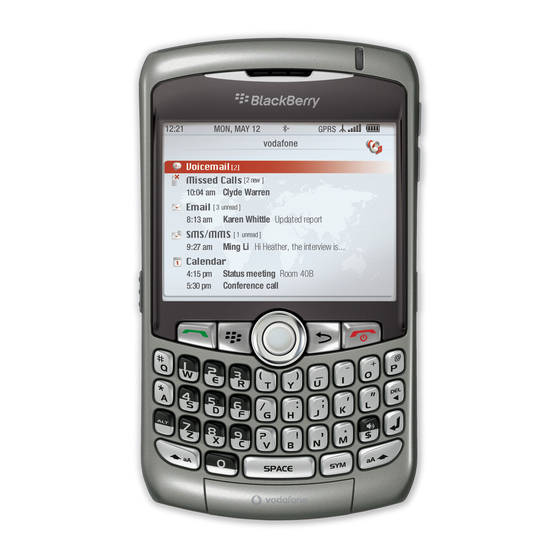Blackberry 8310 Curve AT&T Informazioni sulla sicurezza e sul prodotto - Pagina 23
Sfoglia online o scarica il pdf Informazioni sulla sicurezza e sul prodotto per Telefono cellulare Blackberry 8310 Curve AT&T. Blackberry 8310 Curve AT&T 34. Blackberry curve 8310: supplementary guide
Anche per Blackberry 8310 Curve AT&T: Manuale introduttivo (46 pagine), Manuale introduttivo (46 pagine), Suggerimenti e tecniche (4 pagine), Scheda tecnica (2 pagine), Informazioni sul prodotto (31 pagine), Manuale di avvio rapido (17 pagine), Manuale introduttivo (50 pagine), Manuale introduttivo (10 pagine), Istruzioni per l'utente (2 pagine), Istruzioni per l'utente (2 pagine), Schema di cablaggio (13 pagine)

